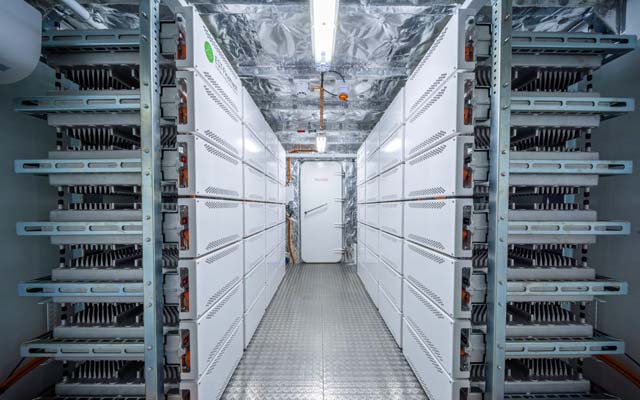Maritime battery system developer EST-Floattech has received an investment of €4m from the Energy Transition Fund Rotterdam and existing shareholders Rotterdam Port Fund, PDENH, Ponooc, and Yard Energy.
The ‘Energietransitiefonds Rotterdam’ is the investment fund of the municipality of Rotterdam. EST-Floattech develops and produces high-quality lithium-ion battery systems for electric and hybrid propulsion of inland vessels, ferries, yachts, and other vessels. Combined with in-house-developed software, the system are designed to provide significant improvements in CO2 emissions, fuel costs, noise pollution, and air quality. €3m of the investment comes from Energy Transition Fund Rotterdam, the fund’s first investment in maritime battery systems. The existing shareholders are jointly investing €1m.
As fund manager of Energy Transition Fund Rotterdam and investor in Rotterdam Port Fund, InnovationQuarter is closely involved in the investment. Rotterdam Port Fund is a private investment fund focused on innovation in the port sector. The fund played an important role in the realisation of the transaction, which exemplifies the close cooperation within the South Holland maritime cluster. EST-Floattech contributes to this ecosystem through many Rotterdam customers, including Damen and Kotug. Innovation in electrification aligns with both the Regional Maritime Agenda 2030 and the Regional Energy Strategy for Rotterdam/ The Hague.
The electrification of shipping is considered to have great social importance. Inland and maritime shipping together account for 16.5% of the Netherlands’ CO2 emissions. Moreover, goods transported by water will increase significantly in the coming years. The EU is aiming for a 50% increase in transport via inland waterways and shorter sea routes by 2050 compared to 2015. For international shipping, volume growth of over 200% is even expected between 2023 and 2050. Currently, only 1% of the global fleet is electrified, and the sector needs to catch up tremendously to achieve net zero by 2050.
Since 1 January 2024, the European CO2 emissions trading system EU-ETS has been in place for larger ships, with smaller ships expected to follow in 2026. The increasing costs associated with CO2 emissions make electrification increasingly interesting within a rapidly growing market. As the second-largest player, EST-Floattech sees many opportunities.
Lithium-ion batteries are said to combine low weight with high energy density, low self-discharge, and long life. EST-Floattech’s battery management system monitors charge status, discharge status, temperature, and other parameters to ensure efficient and safe battery operation. Fire safety is critical on ships. At EST-Floattech, safety is a priority, and the new Octopus Series battery system has been certified by DNV, Lloyd’s Register, and Bureau Veritas.
For the aluminium housing, insulation material, electronic components, and the racks in which the battery cells are installed, EST-Floattech is working with Dutch partners. The investment will allow EST-Floattech to continue to grow nationally and internationally. The company is focusing on market leadership in Northwest Europe and is working with battery manufacturer DuraPower for access to Asia and Oceania. EST-Floattech has plans to focus on larger vessels in the future.
Joep Gorgels, CFO EST-Floattech said: “The investment of Energietransitiefonds Rotterdam and the current shareholders in EST-Floattech not only brings new capital, which helps us take the next step towards growth, it also shows that the Netherlands believes in the power of innovation and sustainable energy. With InnovationQuarter, we have added a new partner, and together with Ponooc, Yard Energy, Rotterdam Port Fund, and PDENH, we continue to build a future in which we contribute to making the maritime industry more sustainable.”
Image: EST Floattech Octopus series battery room (credit: EST Floattech)



